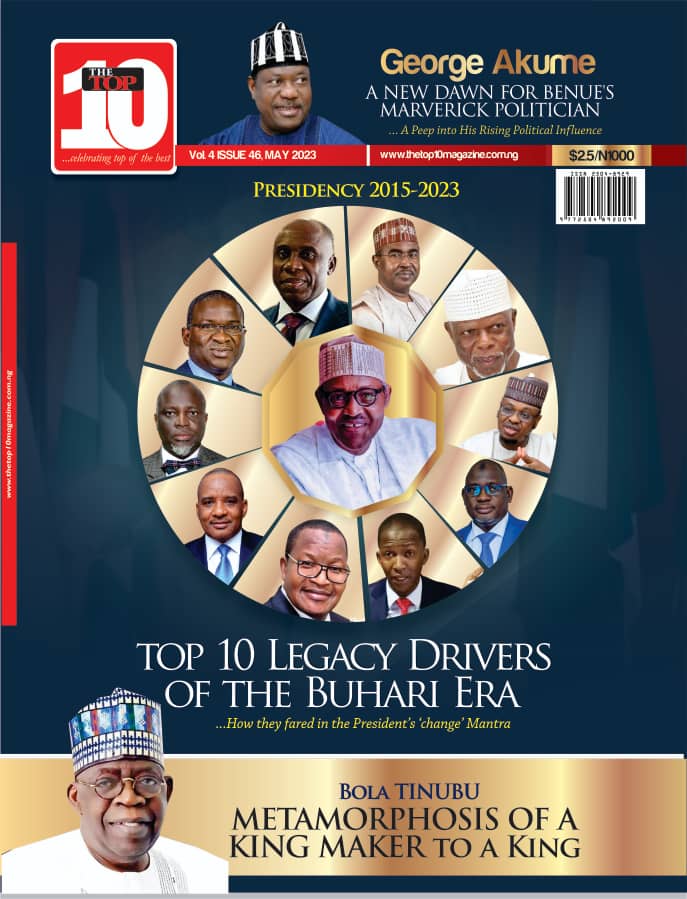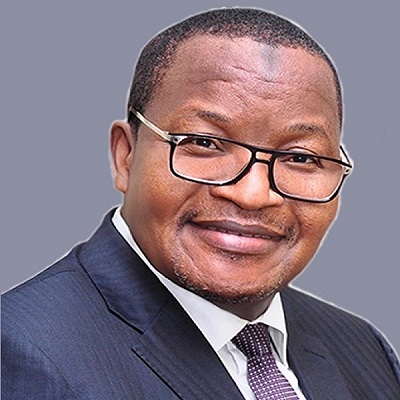Prof. Umar Garba Danbatta, executive vice chairman, Nigerian Communications Commission
[NCC], has manned a strategic industry with one of the greatest potentials for growth and
investment inflow over the eight years of President Muhammadu Buhari’s administration.
Over the eight years that he has been in charge at NCC, it has been the white flag up for him on
effectively using telecomm to drive economic growth and foreign investment inflow.

Telecommunications has remained the growth driver of the ICT industry with its contribution to
GDP advancing from 8.5 percent in 2015 to 15 percent in 2022.
Under his stewardship also, foreign investment inflow into the Nigeria’s telecommunications
industry has more than doubled from $38 billion in 2015 when he assumed office to over $70
billion in 2022.

Furthermore, NCC conducted the auction of 3.5Ghz spectrum to deploy 5G network in
December 2021 from which it raked in over $500 million into the federation account. Between
2015 and early 2020, the Commission remitted roughly N345 billion to the government’s
consolidated revenue fund from spectrum fees and operating surplus.
The commission also embarked on spectrum auctions, re-planning, re-farming to optimise the
usage of available resources, as facilitated by its strategic vision plan 2015-2020.
With the inflow of investments, telecommunications has built a strong capacity to support the
economy, providing the necessary digital impetus to economic diversification effort of the
government. Being a top team player of the President team since his first term in office,
Danbatta’s accomplishments at NCC have provided strong technology backing to government in
changing the course of the economy from oil and gas dependence.
The unprecedented growth recorded in the telecoms sector has exerted a multiplier effect on
other sectors of the economy. Liberalisation of the sector has ushered in different players
leveraging different technologies to offer services. This has opened the channels of e-
commerce, e-banking, e-agriculture, e-healthy, e-transportation, e-education and more.
Consistent growth in telecomm has enabled Nigeria to achieve overall economic growth while
oil GDP has been declining. The commission played the role of positioning telecoms as baseline
enabler for the realisation of the Economic Recovery and Growth Plan 2017-2020 of the
government.
NCC under Danbatta has succeeded in deepening access to telecommunications services – voice
and data in Nigeria through major initiatives, programmes and effective regulatory
interventions. The commission’s efforts exerted stimulatory impacts on key economic sectors
such as healthcare, education, agriculture, finance, transportation, commerce, governance,
among others.
The provision of increased digital access to all economic operators in private and public sectors
has created an information rich society and empowered individuals, businesses and
governments to act on emerging opportunities. This is evidenced by the massive growth in the
telecoms sector that Danbatta’s leadership has recorded over the eight years he has held forth
at NCC.
These years have witnessed an unprecedented growth in telecomm subscribers’ base with the
number of active mobile voice subscribers rising reaching 208 million. A new milestone in
Nigeria’s teledensity was attained in 2022 at 109.5 percent, increasing from the previous record
of 99.2 percent.
Basic internet subscribers have jumped from about 128 million to 152 million under Danbatta’s
watch while broadband subscriptions stood at 85 million, representing a 44.5 percent
penetration as at July 2022.
Increasing broadband penetration is a key focus of NCC, which it has pursued over the years
with the licensing of infrastructure companies under its InfraCos Project. The effort is
essentially a telecoms infrastructure development hunt, which has led to an increase in the
number of licensed companies from 2 in 2015 to 6 in 2022.
The InfraCos are lisenced to deploy broadband infrastructure, on a wholesale basis in the 774
local government areas in Nigeria to achieve accelerated increase in digital access across the
nation. Under the project, a number of clusters of access gaps in the country have been
identified and covered thereby reducing substantially both the number of un-served and
underserved territories and people living in such areas.
The deployment of telecommunications/broadband infrastructure is in support of
government’s objective of ensuring seamless digital financial services across the country.
Danbatta’s effective regulatory intervention has progressively created an enabling environment
for operators to deploy the newest technologies, offering Nigerians improved service
experience with greater efficiency.
Digitalising the economy is NCC’s strategy to realise government’s target of attaining 80 percent
financial inclusion. It has pursued this target by encouraging the mobile network operators to
participate actively in providing financial services alongside the deployment of enabling
telecommunications/broadband infrastructure for seamless digital financial services in the
country.
NCC has also ensured that the increasing access to communication is happening at a reducing
cost. Cost of data dropped by over 75 percent from $11.15 in mid-2014 to $2.78 at the end of
2019, according to a study by Research ICT Africa's 1GB Basket Statistics.
The average cost of data has gone down further to the region of N500 from N1000 per Gigabyte
presently, which has enabled operators to offer 2GB of data for N1000, according to the
commission. This places within reach the commission’s target price of not more than N390 per
1GB of data by 2025.
Ably driving Buhari’s legacy from the telecomm angle, Danbatta has played one of the most
important roles by positioning the telecoms sector as a veritable platform for economic and
social development of Nigeria. It is to his credit that he has not let Nigeria be left behind the
rest of the world in a dispensation where telecommunications has become an essential factor
for measuring the level of socio-economic and political developments globally.






